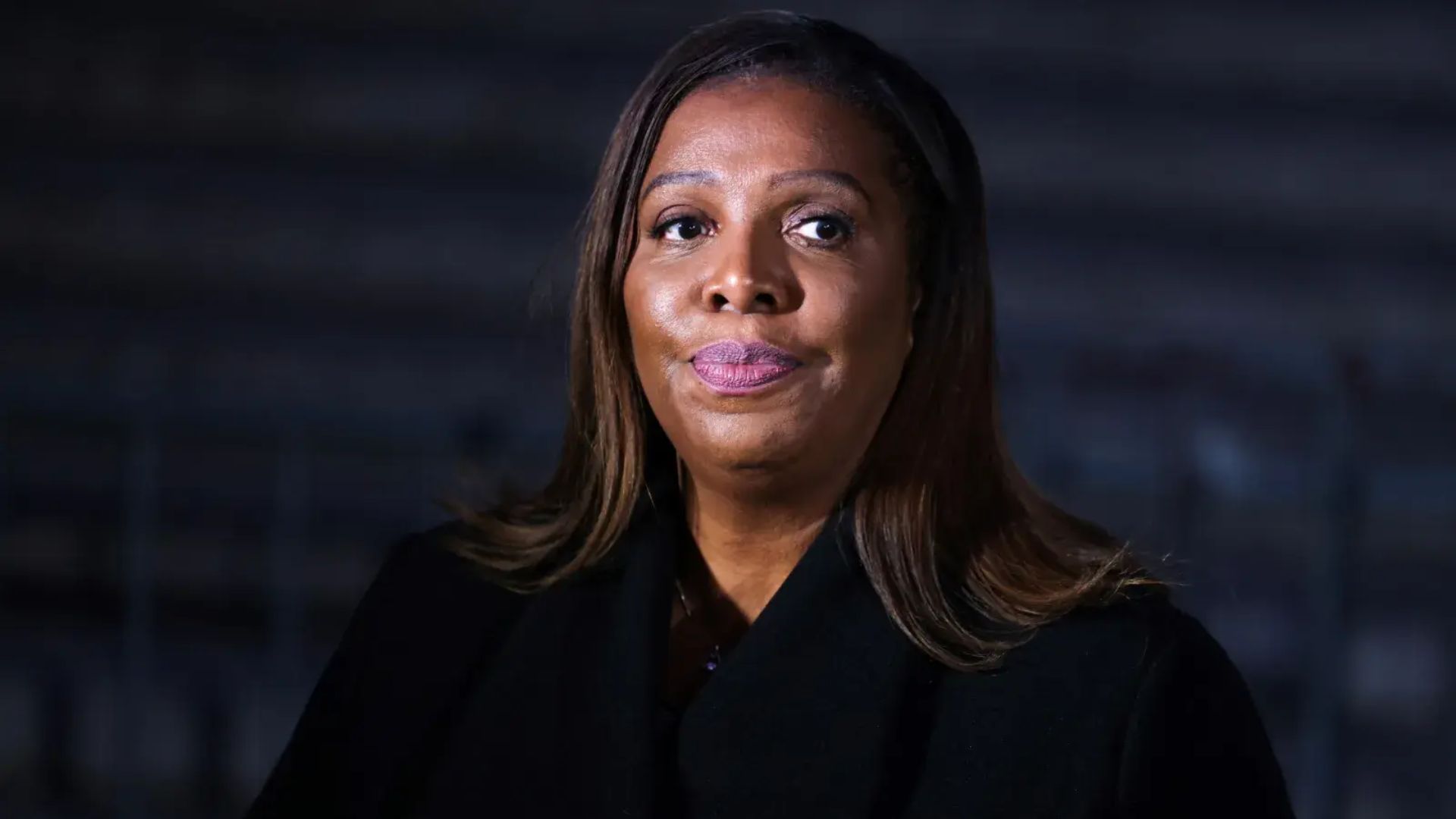State
Attorney General Letitia James requires social media companies to begin reporting their content moderation policies in order to increase accountability and combat online hate in New York

New York – The landscape of online communication is facing a new era of scrutiny in New York, where officials are taking decisive steps to demand transparency from the world’s largest social media platforms. Attorney General Letitia James announced that under the “Stop Hiding Hate” Act, technology companies operating in the state must now report how they moderate content, including hate speech, misinformation, and harassment. The measure, signed into law by Governor Kathy Hochul last December, reflects growing concerns about the role of online platforms in fueling division and real-world violence.
“With violence and polarization on the rise, social media companies must ensure that their platforms don’t fuel hateful rhetoric and disinformation,” said Attorney General James. “The Stop Hiding Hate Act requires social media companies to share their content moderation policies publicly and with my office to ensure that these companies are more transparent about how they are addressing harmful content on their platforms. I thank Governor Hochul, Senator Hoylman-Sigal, and Assemblymember Lee for their work on this legislation to ensure transparency and accountability.”
The law applies to any platform that generates more than $100 million in annual revenue and operates in New York. That threshold captures some of the biggest names in the industry — platforms that shape conversations globally and influence how billions of people receive information. Starting this month, those companies must file biannual reports with the Attorney General’s office, outlining their existing content policies, how those policies are enforced, and what specific actions are taken against flagged content. The first deadline for reporting is January 1, and submissions can be made online.
Governor Kathy Hochul stressed that the legislation is about ensuring safety in both digital and physical spaces. “Whether in our communities or online, my top priority is keeping New Yorkers safe,” she said. “Social media platforms should be a place for people to connect and share their interests — not a place where individuals can hide behind a keyboard to spread hate speech or harass others. This legislation builds on our efforts to improve safety online and marks an important step to increase transparency and accountability.”
At the core of the Stop Hiding Hate Act are requirements designed to hold platforms accountable. Companies must publish their terms of service in plain, understandable language and provide clear contact details for users. They must also explain how users can report violations and outline the possible actions they may take in response, such as post removal, deprioritization in feeds, or demonetization. In their biannual reports, platforms are expected to disclose the number of posts flagged for review, how many of those posts were subject to action, and the nature of those actions.
Failure to comply carries consequences. Companies that neglect to publish their terms of service, submit reports, or provide complete and accurate information may face civil penalties of up to $15,000 for each violation per day. That financial risk adds weight to the state’s call for meaningful accountability from some of the wealthiest corporations in the world.
Senator Brad Hoylman-Sigal, who co-sponsored the legislation, underscored the urgency of regulating digital spaces where disinformation and hate can spread unchecked. “As real and threatened political violence emanates from the spread of hate speech and disinformation online, the Stop Hiding Hate Act will ensure that New Yorkers are able to know what social media companies are doing (or not doing) to stop the spread of hatred and misinformation on their platforms,” Hoylman-Sigal said. “The commencement of required reporting by social media companies is an important milestone and first step toward allowing New Yorkers to be able to better decide which social media platforms they utilize. The transparency and accountability resulting from the reporting required by the Stop Hiding Hate Act will reduce the circulation of malevolent white supremacy, antisemitism, islamophobia, anti-LGBTQ hatred and anti-AAPI violence. New Yorkers deserve this information, and I am happy to stand with Attorney General Letitia James, Assemblymember Grace Lee, and the Anti-Defamation League as we start to shed a light on the darkness that is social media content moderation.”
Assemblymember Grace Lee, also a co-sponsor, linked the legislation directly to lived experiences during the pandemic. “Starting today, New Yorkers will finally get the transparency they deserve from social media companies,” she said. “For too long, attention-driven algorithms have amplified harmful content with little accountability. The Stop Hiding Hate Act changes that by requiring clear reporting and real oversight. During COVID, the Asian American community felt firsthand how online lies can fuel real-world violence. Transparency and data are essential tools to hold platforms accountable. I’m proud to have worked with Attorney General Letitia James, Senator Hoylman-Sigal, and the ADL to protect New Yorkers from online harm.”
The new reporting system offers the public an unprecedented look into how companies define terms like “hate speech” or “misinformation,” as well as the steps they take to respond to such content. By demanding specifics, from definitions to enforcement actions, the state is hoping to close a gap between what companies say they do and what they actually practice.
For years, advocacy groups and researchers have criticized major platforms for failing to control harmful content. Algorithms designed to maximize engagement have been accused of amplifying polarizing messages, while opaque policies have left users and lawmakers unsure of how decisions are made. The Stop Hiding Hate Act aims to pierce that opacity, forcing platforms to show their work.
The law’s implementation marks a broader shift in how states are beginning to regulate online platforms. While federal action on content moderation has stalled amid political gridlock, New York’s approach represents a state-level attempt to bring transparency into one of the most powerful industries of the 21st century. By leveraging disclosure requirements rather than dictating speech rules, lawmakers hope to encourage accountability without directly infringing on First Amendment concerns.
Advocates argue that transparency alone can make a difference. Public reports will give watchdog groups, policymakers, and everyday users a chance to compare platforms, judge their effectiveness, and pressure them into adopting stronger safeguards if necessary. The availability of consistent data could also help researchers better understand how harmful content spreads, and which interventions work best in slowing its reach.
For Attorney General James, the measure is part of a larger campaign to protect communities from violence that begins online but does not remain there. She has consistently pointed to the connection between digital hate speech and real-world attacks, citing events where extremist rhetoric online preceded violent acts offline.
The stakes are high. Social media platforms serve as the public square for millions of Americans, yet the way they are managed often remains hidden behind corporate walls. With the Stop Hiding Hate Act now in effect, New Yorkers will have access to information that was once kept secret, and platforms will face pressure to prove that they are serious about reducing harm.
In the coming months, the first reports filed under the law will provide a test of how companies respond. The data they disclose could reveal patterns that either reinforce trust in their efforts or confirm long-standing suspicions about their shortcomings. Either way, the information will belong to the public, fulfilling the law’s central promise: shedding light on what has too often been kept in the dark.

-

 Local News12 months ago
Local News12 months agoNew ALDI store close to Rochester to begin construction in late 2025 or early 2026
-

 Local News11 months ago
Local News11 months agoRochester Lilac Festival announces exciting 127th edition headliners
-

 Local News9 months ago
Local News9 months agoCounty Executive Adam Bello and members of the county legislature celebrate exceptional young leaders and advocates at the 2025 Monroe County Youth Awards
-

 Local News9 months ago
Local News9 months agoThe 2025 Public Market Food Truck Rodeo series will begin this Wednesday with live music by the Royal Bromleys